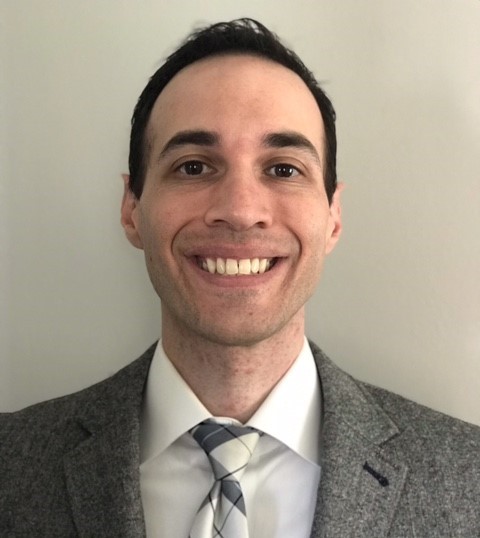Invited Session 4: Dose-Finding and Dose-Optimization in Oncology Drug Development Beyond Statistics
Chair: Hao Zheng, Associate Director, Beigene
 Hao Zheng is currently Associate Director of Biostatistics in BeiGene. Hao joined BeiGene in 2019 and provides statistical expertise to oncology clinical development; prior to BeiGene, Hao was working for Gilead Sciences in oncology and immunology clinical studies. Hao obtained his Ph.D. in Statistics from University of Wisconsin-Madison in 2014. Hao authored/co-authored multiple journal publications on statistical methodology and contributed to various conference presentations. Hao has been serving as invited reviewer for a variety of scientific journals on both theoretical statistics and statistical applications in clinical research.
Hao Zheng is currently Associate Director of Biostatistics in BeiGene. Hao joined BeiGene in 2019 and provides statistical expertise to oncology clinical development; prior to BeiGene, Hao was working for Gilead Sciences in oncology and immunology clinical studies. Hao obtained his Ph.D. in Statistics from University of Wisconsin-Madison in 2014. Hao authored/co-authored multiple journal publications on statistical methodology and contributed to various conference presentations. Hao has been serving as invited reviewer for a variety of scientific journals on both theoretical statistics and statistical applications in clinical research.
Abstract
Dose-finding and dose-optimization studies are crucial part for early phase clinical trials. Drug development in oncology has shifted from cytotoxicity drugs to targeted and immunotherapies. As recognized by Project Optimus by US FDA Oncology Center of Excellence (OCE), the shift brings changes in the study design and considerations for dose-finding and dose-optimization in oncology trials. An increasing trend has been reported for dose modification or reduction for safety or tolerability in oncology drugs after approval. Examples include Ceritinib, Dasatinib and counting. Fundamentally, dose-finding and dose-optimization require multidisciplinary discussions beyond statistics including medical doctors, clinical pharmacologists, pharmacometricians and more. In this session, we invite three speakers, who are not statisticians, to share their perspective, considerations and potential strategies to consider appropriate oncology dose-finding/dose-optimization studies.
Clinical Pharmacology Based Strategies to Change the Dosing Paradigm for Oncology Products
Speakers: Jeanne Fourie Zirkelbach, Clinical Pharmacologist Team Lead, PhD, CDER, FDA & Ye Xiong, PhD, Pharmacometrics Reviewer, FDA
 Jeanne Fourie Zirkelbach, PhD, is a Team Lead Clinical Pharmacologist at the Office of Clinical Pharmacology, Division of Cancer Pharmacology II, at the U.S. Food and Drug Administration. Dr. Fourie Zirkelbach is actively engaged in research on patient reported outcomes (PRO) symptom data to complement traditional exposure-response analysis for dose optimization within the Oncology Center of Excellence (OCE) Project Patient Voice and on early dose optimization initiatives within OCE’s Project Optimus. Following her PhD, she, served as a Postdoctoral Fellow at the University of Alabama, Birmingham, Department of Pharmacology and Toxicology and Comprehensive Cancer Center, and subsequently, completed her Research Fellowship at the Department of Molecular Pharmacology and Experimental Therapeutics at the Mayo Clinical Cancer Center, Rochester.
Jeanne Fourie Zirkelbach, PhD, is a Team Lead Clinical Pharmacologist at the Office of Clinical Pharmacology, Division of Cancer Pharmacology II, at the U.S. Food and Drug Administration. Dr. Fourie Zirkelbach is actively engaged in research on patient reported outcomes (PRO) symptom data to complement traditional exposure-response analysis for dose optimization within the Oncology Center of Excellence (OCE) Project Patient Voice and on early dose optimization initiatives within OCE’s Project Optimus. Following her PhD, she, served as a Postdoctoral Fellow at the University of Alabama, Birmingham, Department of Pharmacology and Toxicology and Comprehensive Cancer Center, and subsequently, completed her Research Fellowship at the Department of Molecular Pharmacology and Experimental Therapeutics at the Mayo Clinical Cancer Center, Rochester.
 Ye Xiong is a senior pharmacokineticist in Division of Pharmacometrics at the FDA. She received her PhD in Pathobiology and Molecular Medicine, a master in Statistics, and a master in Drug Metabolism and Pharmacokinetics. Her current role in FDA focuses on review in the area of oncology by applying quantitative clinical pharmacology and model-informed approaches to support regulatory decisions such as dose selection in general and specific populations, evidence of effectiveness and safety in intention-to-treat population, trial design during drug development and post-marketing commitments and requirements, etc. She led multiple research projects and review standardization efforts to enhance drug efficacy/safety evaluation and improve efficiency of review process.
Ye Xiong is a senior pharmacokineticist in Division of Pharmacometrics at the FDA. She received her PhD in Pathobiology and Molecular Medicine, a master in Statistics, and a master in Drug Metabolism and Pharmacokinetics. Her current role in FDA focuses on review in the area of oncology by applying quantitative clinical pharmacology and model-informed approaches to support regulatory decisions such as dose selection in general and specific populations, evidence of effectiveness and safety in intention-to-treat population, trial design during drug development and post-marketing commitments and requirements, etc. She led multiple research projects and review standardization efforts to enhance drug efficacy/safety evaluation and improve efficiency of review process.
Abstract
In oncology, the traditional dose finding strategy that identifies maximum tolerated dose for cytotoxic chemotherapeutic agents is deemed less relevant for the targeted agents that act on specific targets or regulate immune system. The awakening call is the PI3K inhibitors that are highly effective for tumor killing, but patients were unable to tolerate the drug which resulted in an unfavorable benefit risk reflected by a reduction in the overall survival. Apart from that, for many indolent cancers, the treatment goal is no longer how potent a drug is in killing tumor cells but rather how benefit risk can be balanced such that patients can be free from disease progression with quality living. Therefore, PK and exposure response analysis are becoming more important than ever. These analyses should be underscored to select an appropriate dosage that benefits the patient population as a whole and to allow informative dose adjustment for specific populations thus improving the adherence to an effective therapy. Selection of dosages moved forward in clinical development and later trials designed to support a marketing application should be justified based on a totality of evidence approach. This includes design of early dose finding trials that collect preliminary activity and safety (including longer term tolerability data) over a wide exposure range where efficacy may be optimized, and inclusion of the patient perspective on tolerability assessment to inform selection of dosages moved forward. In this talk, we will go over the history of Project Optimus that is instated to fulfill this mission, the change in the dosage optimization strategy, and present case examples where FDA was actively engaged throughout the drug development phases to influence dose selection and optimization.
Is There a ‘Right’ Dose?
Speaker: Shivaani Kummar, Oregon Health & Science University
 Dr. Kummar is DeArmond Endowed Chair of Cancer Research, Division Chief of Hematology and Medical Oncology, co-Director of the Center of Experimental Therapeutics, and Deputy Director for Clinical and Translational Research, Knight Cancer Institute, Oregon Health & Science University. Previously she served as head of Early Clinical Trials Development in the Office of the Director, Division of Cancer Treatment and Diagnosis, National Cancer Institute, and Professor and Director of the Phase I Clinical Research and Translational Oncology Programs, Stanford University. She specializes in conducting pharmacokinetic and pharmacodynamic driven first-in-human trials tailored to make early, informed decisions regarding the suitability of novel molecular agents for further clinical investigation. She is a member of scientific planning committees of national and international professional organizations and has authored over 150 peer reviewed publications, 9 book chapters, and co-edited a book on ‘Novel Designs of Early Phase Trials for Cancer Therapies’. She is currently a member of the American Association for Cancer Research Exploratory IND/Phase 0 Clinical Trials Task Force, Cancer Progress Report 2022 Steering Committee, and co-Chair of the Clinical Trials Committee.
Dr. Kummar is DeArmond Endowed Chair of Cancer Research, Division Chief of Hematology and Medical Oncology, co-Director of the Center of Experimental Therapeutics, and Deputy Director for Clinical and Translational Research, Knight Cancer Institute, Oregon Health & Science University. Previously she served as head of Early Clinical Trials Development in the Office of the Director, Division of Cancer Treatment and Diagnosis, National Cancer Institute, and Professor and Director of the Phase I Clinical Research and Translational Oncology Programs, Stanford University. She specializes in conducting pharmacokinetic and pharmacodynamic driven first-in-human trials tailored to make early, informed decisions regarding the suitability of novel molecular agents for further clinical investigation. She is a member of scientific planning committees of national and international professional organizations and has authored over 150 peer reviewed publications, 9 book chapters, and co-edited a book on ‘Novel Designs of Early Phase Trials for Cancer Therapies’. She is currently a member of the American Association for Cancer Research Exploratory IND/Phase 0 Clinical Trials Task Force, Cancer Progress Report 2022 Steering Committee, and co-Chair of the Clinical Trials Committee.
Abstract
One of the objectives of Phase I trials is to determine the recommended phase 2 dose (RP2D). With increase in biomarker driven drug development , there is debate whether that RP2D should be the maximum tolerated dose or the ‘optimal biologic dose (OBD)’? How do we define OBD? Is there a histologic and/or biomarker context? Presentation will cover clinical, pharmacokinetic and pharmacodynamics considerations in determining the recommended phase 2 dose, especially in the era of personalized medicine.
Discussant: Jonathon Vallejo, FDA
 Jonathon Vallejo is a supervisory mathematical statistician in Division of Biometrics IX at FDA. Jonathon earned his PhD in statistics from Baylor University and joined FDA in 2016. His team supports the Division of Hematologic Malignancies I, which reviews protocols and applications in AML, MDS, ALL, and related diseases. Jonathon is involved in regulatory initiatives involving trial design and dose optimization. In addition, Jonathon’s research interests include biomarkers, meta-analysis, and statistical issues in pediatric oncology.
Jonathon Vallejo is a supervisory mathematical statistician in Division of Biometrics IX at FDA. Jonathon earned his PhD in statistics from Baylor University and joined FDA in 2016. His team supports the Division of Hematologic Malignancies I, which reviews protocols and applications in AML, MDS, ALL, and related diseases. Jonathon is involved in regulatory initiatives involving trial design and dose optimization. In addition, Jonathon’s research interests include biomarkers, meta-analysis, and statistical issues in pediatric oncology.